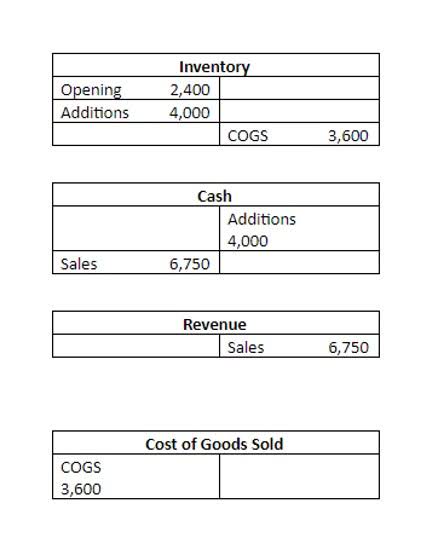
The best kinds of bookkeeping software are the ones that are accessible to anyone from a layman to an expert. Look for one that’s intuitive with bookkeeping for therapists a good user experience and also consider ones that have a mobile app so you can use it on the go. As doctors, they are instantly reviewing and brushing up on treatment plans and new studies and developments. The last thing they need is another software that requires them to learn how to be accountants as well as counselors. Not sure how to plan for a successful private practice that really makes you happy? Download your private practice visionworksheet by joining our free Private Practice Library here.
Keep Records of Non-Cash Contributions
- We will draft a proposal in a software program called Practice Ignition, and you will sign and send your agreed-upon initial payment.
- I help business owners eliminate the barriers to growth and take their company to the next level.
- Whether managing your finances independently or outsourcing to a professional, it’s essential to allocate the necessary attention and resources to your financial management processes.
- The government taxes you based on the structure of your business.
- One solution is to categorize your business transactions at the end of each month or quarter.
- A good bookkeeping system means always knowing how much you’ve earned and spent.
Your EIN is used to identify your business on all federal tax filings. In bookkeeping, an account (also called a ledger) is a category of revenue or expense. Your chart of accounts lists all of these categories, and you or your bookkeeper refer to it when categorizing transactions. One of two accounting methods, along with cash basis accounting. Using the accrual method, when you earn money, you record it as revenue on the books (accounts receivable), even if you haven’t actually received the cash payment. Similarly, when you incur debt, it’s recorded as an expense, even if you haven’t actually paid it (accounts payable).
accounting
Just as your patients place their trust in your expertise, entrusting your financial records to a professional is a wise decision. While utilizing a do-it-yourself accounting solution may seem cost-effective initially, the potential for errors and overlooked tax deductions can lead to greater financial losses over time. The demands of a busy therapeutic practice can often sideline bookkeeping tasks, but adopting best practices for financial management can save time, money, and stress. Alternatively, if you manage a small caseload and enjoy doing and learning about the accounting involved, by all means, keep doing it! If you’re just starting a practice, mixing your personal and professional transactions can be easy if you don’t have a separate business account. You can focus more on research and personalized patient care while experienced professionals focus on your books.
- This is because you are responsible to pay the full amount for Medicare and Social Security.
- The amount of a deductible expense is either wholly or partially deducted from your gross income.
- Moreover, diversifying the range of services, such as offering group sessions or workshops, can provide additional revenue streams with lower relative costs.
- The information generated by bookkeeping is used to create financial statements.
- Maintaining cash flow and proper documentation is also helpful to prevent payment issues.
Outdated Books
- Navigating bookkeeping for your private practice requires knowledge, attention to detail, and the right tools.
- However, you don’t actually have the cash in your bank account, so you can’t spend it.
- Regardless of where you find help, check their experiences and references to see whether they understand the nuances of bookkeeping for therapists.
- Bench simplifies your small business accounting by combining intuitive software that automates the busywork with real, professional human support.
These professionals can identify tax-saving opportunities and implement effective tax planning strategies, often making the investment in their services more cost-effective than anticipated. Proper bookkeeping allows for the meticulous tracking of operational costs, many of which are tax-deductible. This includes expenses such as attending recording transactions professional conferences, subscriptions to industry journals, or purchasing equipment like laptops for work purposes. If you have no time for anything else between seeing clients and managing the books, then it’s probably time for professional help. Recording liability payments as an expense would mean double-counting that cost on your financial statements.


Now that you know what church bookkeeping entails and why it’s important, let’s walk through some additional tips to set your organization up for success. The QBI deduction allows you to deduct up to 20% of your gross income for the year, provided your business meets certain requirements. It can be a bit complex to figure out, but has the potential to significantly Law Firm Accounts Receivable Management lower your tax burden. If your budget does not allow for an additional $30-$60 per month expense for a QBO subscription, consider the alternative software mentioned above. As a member of the PractiSage Therapist Collective, I was given an opportunity to run a workshop for some colleagues about implementing the Profit First system in their practices. I knew supporting therapists with the financial side of business was what I had been looking for.


Even though it may seem in the beginning like there isn’t enough money to divide, it’s best to do so right from the start. Dividing personal and business finances also helps you be realistic about what you can spend in either facet of your life. Beyond these, expense management empowers you to make educated decisions by being aware of where your practice’s money is going and assessing whether these are the best expenditures in the future. To have a good understanding of the financial health of your business, you’ll need to keep some financial documents up to date. Rather than scrambling in April, it’s in your best interests to sort your books along the way.





